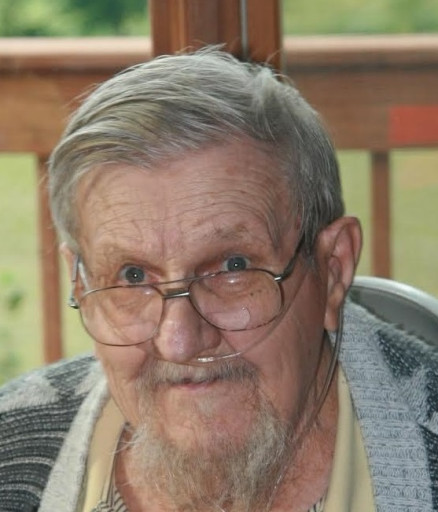

John Eichman
December 24, 1924 — December 10, 2015
John Eichman
JOHN S. EICHMAN
John Stephen Eichman, 90, of rural Trempealeau died as he wished, December 10, 2015, peacefully in his home. After living past his life expectance for COPD by several years, he died from the relapse of esophageal cancer and complications trigger by the COPD.
Diagnosed a year ago with Stage II Esophageal Cancer, his treatment options were limited due to the COPD. Not having the civilized option of national healthcare, available in the developed countries of the world, it was questionable if John was going to be able to obtain that one and only viable treatment option: three sets of radiation treatment, sequenced one each day for two days, spaced precisely two weeks apart. Success rested on the persistent efforts of his grandson Dr. Jude Eichman coordinating with and between Dr. Annette Faller, Dr. David Schwartz, two hospitals: Mayo Rochester and St Francis LaCrosse, and the nursing home Marinuka Manor—all of whom were truly gracious and helpful in their efforts.
The remission/containment of the cancer gave John the opportunity to eat and drink again—to really enjoy being alive. Additionally, all who knew and loved John had one more year to enjoy his wit and humor, to appreciate his unconditional acceptance of others, and a more focused opportunity to learn from him.
John lived a life of service and kindness to everyone as well as an acceptance of life on life’s terms. Life’s terms in his later years, stopped him from doing any of the things he had loved to do and left him spending many conscious hours sitting at his kitchen table “looking out the south window.” He transcended this spiritual journey, into “the stillness of the present moment, the Now” with the tools he had at hand. He noticed the sacred flow of nature presented to him, (the-weather-of-the-day, the birds, “his” black squirrel), praying the rosary with his wife, mass on TV, and playing Solitaire—and allowing himself the luxury of cheating when he felt like it.
Every weekend he looked forward to the regular afternoon visits to his son’s farm--which just happened to be the same farm of his own dream, and a homegrown full course evening meal. John would tell you, that besides the active family conversation, he enjoyed a good meal with a little French wine. He enjoyed the loving interaction with his great grand children especially their eagerness to see him. They would shower him with hugs and kisses, sitting on his lap, singing him songs and playing piano and violin, put on dance plays as a group, bantering back with his teasing or play with words. He initiated a tag game with them. He would chase them and try to catch them with his electric wheel chair.
Finally he would tell you, perhaps even as he watched and played with these grandchildren consistently for the past twelve years, an equally great pleasure was to be had sitting on his grand-son’s deck surveying the grand vista of the hills that he walked, hunted, and loved all of his life.
John loved and interacted with all of his 17 grandchildren, 36 great grandchildren and 1 great great grandchild. Two of his great grandchildren lived next door. Grandpa John and Grandma Gene looked forward to the almost daily contact with them. However, many of their great grandchildren did not live close; consequently, any opportunity to connect with those grand children was especially precious and joyful.
John as well as his wife Gene just had a special knack for connecting with children.
John was born on December 24, 1924, the 15th of the 18 children of Paul and Martha (Kulas) Eichman. On June 11, 1946, he married Genevieve (Gene) Molitor at Our Lady of Perpetual Help Catholic Church in Arcadia.
John’s life centered on three core values: his children should get a good education, love of family, and generosity to others.
His immediate family included not only the spouses that his children or grand children married, but if a spouse happened to come along with children, he as well as his wife insisted that those children were also part of the family.
His extended family were all of the descendents of his siblings. Each was special to him with something unique between them—my godson, my dancing partner etc. If they needed a hand or perhaps a unique one-of-kind handmade baby cradle, he was there.
John’s concept of family went beyond his extended family. Families that needed unconditional acceptance were also his family: immigrants or others not yet integrated into the community. From the DPs (displaced persons) from Poland, to the Mexican family working for a better life, to the war damaged WWII veteran who was too depressed to adequately function in providing for his family, all were always welcomed in his home and at his table.
John did not complete high school; he wanted to enlist in the army but was “encouraged” to stay home to care for his mother and the family farm. Farming with horses and a small tractor left little time for study.
After marriage, he and his wife managed the City Cafe in Arcadia Wisconsin where, because of the cactus plants in the restaurant he earned the nickname of “Cactus Jack.” Although this name was catchy sounding, managing a business in the city did not catch on. Not a good fit.
From the City Café he went into farming with his sister and brother-in-law on the sand prairie near Centerville WI. At the time, the prairie was still untamed. The spring sand storms would block out the sun, the sand blows would bury fence lines, and every “blow” would fill one’s house with yet another layer of sand.
While the farming did not work out, his family continued to grow. Consequently, he commuted weekly by train to Minneapolis and worked for Minneapolis Moline Tractor Company. It did not take long to figure out that being away from his family that long was just never going to be okay. Consequently, he took a foundry job in Winona where he worked for many years and lost much of his hearing—unless you were whispering about him three rooms away.
He was frustrated with the foundry work. It was loud, heavy, hot, dangerous, and pasted one’s body with a black grit—every day. Eventually, he changed jobs. Although he took less pay, he was out in the fresh air. He worked for a company out of Fountain City doing roofing, general construction, and carpentry.
It did not take long for him to figure out that he had a real talent for carpentry, but he was giving his skill away working for a minimum wage. He undertook to studying carpentry, by a textbook, on his own. He soon became a master union carpenter and worked for many years. No job was ever too dangerous, too menial or beneath him. This included the handling of asbestos, which contributed to his developing COPD; or crawling out on poorly constructed scaffolding to do a job.
John was always a strong and vigorous man, but a bridge construction accident near St. Peter MN forced him into the early retirement. When that poorly rigged scaffolding broke, he fell eighteen feet. He landed on his head splitting the top of his head open from ear to ear, and destroyed his shoulders such that he could never work with his arms over his head again.
Unfortunately, this accident was follow by more sinister misfortune. “Corporate investigators” videotaped him crawling around in his garden, which they then used to deny him disability compensation. Although fully disable by an employer’s mistake, he never received a dime of disability pay.
Along with his wife, Gene, growing things, making things, and helping others was their passion. If you wanted to find John, he was either “crawling in his garden”, gathering anything that could be fermented (dandelion wine was his best), working in his wood shop, helping friends (curing concrete) or he would be accompanying his wife on a 100 mile journey to deliver a birthday cake to a grandchild.
Doing nothing was a painful spiritual path for a man who defined himself by doing things. The last few years when asked, what have you been doing this past week? He would say with a taste of dry humor, “Keeping an eye out of the south window.”
His children, grandchildren and great grandchildren—as well as many others reaped the benefits of his workshop from bushel boxes for apples, to quilt racks, to mounted deer horns, to baby cradles, to fancy chair/step stools, to most anything someone wanted or needed repaired. Each item he made was a one-of-kind, each with its own unique characteristics. He made most of these things from a variety of local native hard woods from his son’s farm.
In addition to his love for growing and making things, he passed on his love for fishing, for walking the woods (for mushrooms), and hunting.
All of his siblings, save one, Robert, have preceded John in death. In addition, he was preceded in death by his only and much love daughter Charlotte (Cookie). John is survived by his wife of 69 years, Genevieve (Gene), age 90; and by four children: Roger (Mary Ann) of Dodge WI; Gerald (Patricia) of Auburndale WI; Steven of Turtle Lake; and, Quentin (Carla) of Trempealeau WI.
A Mass of Christian Burial will be offered at 11 AM on Saturday, December 12, 2015, at St. Bartholomew’s Catholic Church in Trempealeau, WI. The Reverend Antony Joseph will officiate.
John will be laid to rest in Holy Cross Cemetery, Trempealeau.
Visitation will be held at the Watkowski-Mulyck Funeral Home on Friday, December 11, 2015, from 4 PM until 7 PM, where the Recitation of the Most Holy Rosary will be held at 6:45 PM. Visitation will also be held at St. Bartholomew’s Catholic Church in Trempealeau on Saturday, December 12, 2015, from 10 AM until the time of the Mass.
Pallbearers will be: Braeden Eichman, Bryce Eichman, Doug Eichman, Quentin Eichman, Jr., Ryan Eichman, and Tom Smith.
Please share condolences, memories, and view John’s life story at www.watkowski-mulyck.com.





